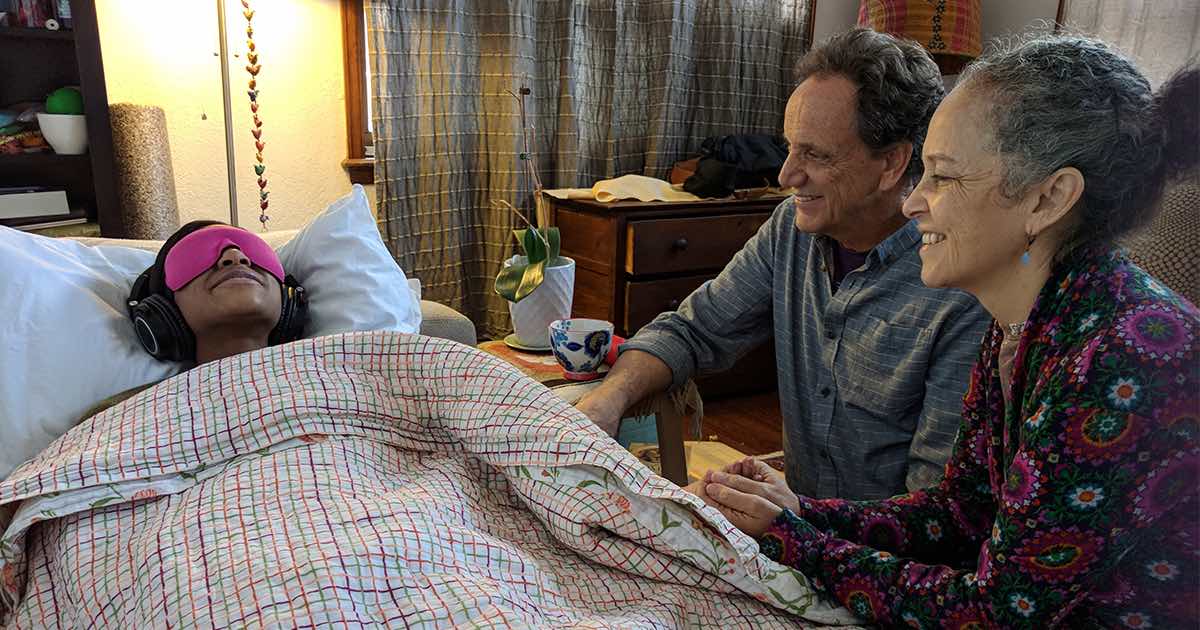A breakthrough human trial achieved highly statistically-significant results and an excellent safety record, demonstrating that MDMA-assisted therapy can be an effective treatment for severe and chronic Post-Traumatic Stress Disorder (PTSD).
At the end of the randomized, blinded, Phase 3 trial, carried out by the nonprofit Multidisciplinary Association for Psychedelic Studies (MAPS), 67% of participants who received three MDMA-assisted therapy sessions no longer even qualified for a PTSD diagnosis—and 88% experienced a clinically meaningful reduction in symptoms.
The pivotal study treated 90 patients with severe, chronic PTSD from any cause with an average duration of 14 years, and replicated the successful results of its Phase 2 trials
Study participants included patients with PTSD caused by combat-related events; accidents; abuse; and sexual harm, and 84% have a history of developmental trauma.
”While many forms of PTSD therapy involve recalling previous trauma, the unique ability of MDMA to raise compassion and understanding while tamping down fear is likely what enables it to be so effective,” says Jennifer Mitchell, Ph.D., lead author of the paper.
RELATED: MDMA Study From Johns Hopkins Further Explains Why Ecstasy Can Help Treat PTSD
The peer-reviewed paper was published in Nature Medicine on May 10.
In the first Phase 3 trial of any psychedelic-assisted therapy, participants who received the MDMA plus manual therapy reported a significant reduction in PTSD symptoms compared to those who received placebo with therapy (p<0.0001).
67% of the group who received MDMA, compared to 32% of the group who received placebo, no longer qualified for a PTSD diagnosis after three treatment sessions. In addition, participants treated with MDMA-assisted therapy had statistically significant reductions for symptoms like depression, relative to placebo with therapy (p=0.0116).
“People with the most difficult-to-treat diagnoses, often considered intractable, respond just as well to this novel treatment as other study participants,” said Mitchell. “In fact, participants diagnosed with the dissociative subtype of PTSD experienced a greater reduction in symptoms than those without the dissociative subtype.”
Designed under a Special Protocol Assessment with the FDA, the trial treated 90 patients with severe, chronic PTSD. Participants were randomized to receive three sessions of either MDMA or placebo with identical talk therapy. 46 participants received MDMA therapy and 44 participants received therapy with placebo. The primary efficacy endpoint was based on the change from baseline in an independently assessed clinical interview of PTSD severity after 18 weeks.
The assessors also measured average change in functional impairment in work/school, social, and family life. Among the participants in the MDMA-assisted therapy group, 88% experienced a clinically significant reduction in symptoms, compared to 60% in the placebo group.
In the Phase 3 trial, the investigators observed no serious safety or tolerability issues in the MDMA group. MDMA did not increase the risk of suicidal thoughts or behaviors and did not increase cardiovascular risk or abuse potential relative to therapy with placebo. As expected from previous clinical trials, temporary increases in blood pressure and pulse were observed during MDMA sessions; adverse events such as muscle tightness, decreased appetite, nausea, sweating, and feeling cold lasted only for a short time.
THC: First-of-its-Kind Clinical Study Finds That Microdosing THC Can Reduce Chronic Pain
The vanguard of mental health care – enrolling volunteers
PTSD researcher and author of the foundational book on PTSD, The Body Keeps the Score, Bessel van der Kolk served as Principal Investigator for the Boston study site. He explains, “The experience of having been traumatized profoundly alters perceptions; self-experience; and capacity to plan, imagine and anticipate. For 88% of people who receive this treatment, we can expect to see a treatment response. This can lead to fundamental shifts in our subjects’ perspective on self-capacity, affect regulation, and attitude towards those around them. These results open the door to a potentially powerful new pathway to healing.”
A second Phase 3 clinical trial is currently enrolling participants in 7 different US states. Additionally, MAPS plans to conduct other studies to explore the potential of this treatment for other mental health conditions, but always stresses that this experimental therapy “necessitates the appropriate setting to truly guide change and recovery.”
RELATED: First Publicly-Traded Psychedelic Wellness Companies Map the Mental Health Revolution
Listed as a Schedule I drug, MDMA, also known as ‘ecstasy,’ is defined by the FDA as having “no medical benefit” and, therefore, is not currently accessible as a treatment for any condition, except as administered in clinical trials. Thanks to MAPS, founded 35 years ago—and their scientific rigor—this is likely to change soon. Their goal is an FDA approval in 2023 as a ‘Breakthrough-designated therapy’.
SHARE the Ecstasy of This Breakthrough Research on Your Social Media Page… (Photo courtesy of MAPS)




















